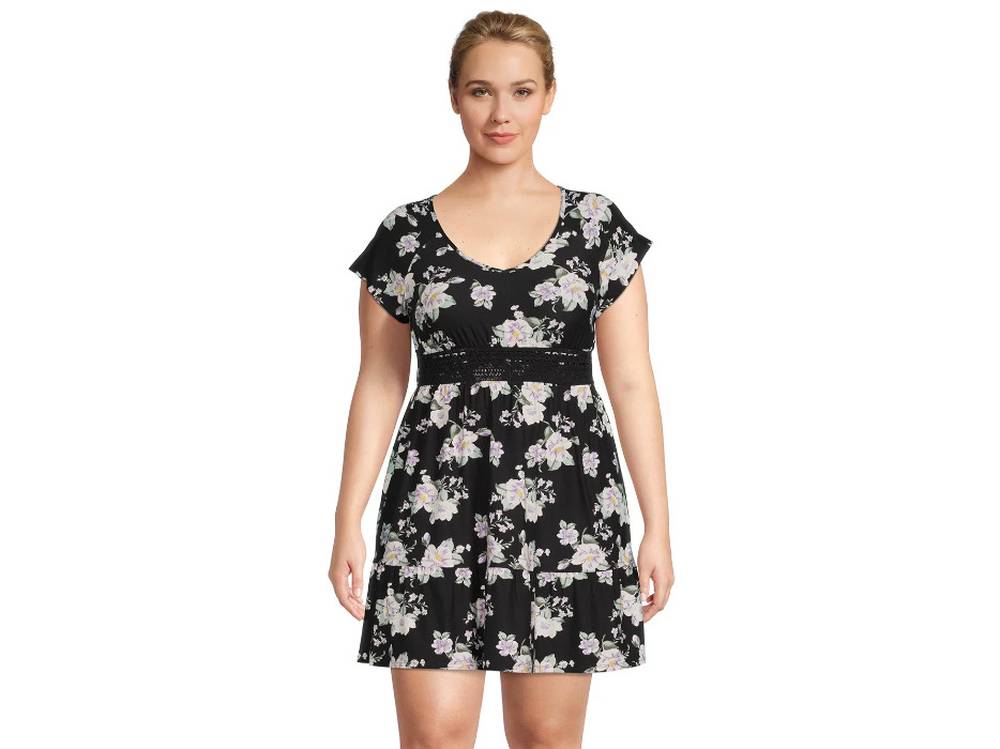
Walmart is an American retailer founded in 1962 in Arkansas, United States, by Sam and Bud Walton. The multinational retail company also creates fashion products for men, women, and children.
Walmart makes clothing, accessories, shoes, eyewear, watches, and jewelry. They have suppliers located around the world and also sell third-party products directly to customers on Walmart.com.
Walmart operates more than 10,500 physical stores and clubs in 20 countries and has approximately 2,100,000 employees in stores, factories, logistics, brands, and subsidiaries around the world.
Walmart has been collaborating with others to drive positive impact. It focuses on climate, nature, waste, and people in supply chains and aims to become a regenerative company.
Walmart wants to make a lasting, net positive impact on people and the planet through its products, services, and business practices. Its founders gave it a timeless and meaningful purpose to save people money and help them live a better life.
Panaprium is independent and reader supported. If you buy something through our link, we may earn a commission. If you can, please support us on a monthly basis. It takes less than a minute to set up, and you will be making a big impact every single month. Thank you!
Sustainability Rating: 5/10
Rating FAQ
Category: Clothing, accessories, shoes, bags, jewelry
For: Women, men, children
Type: Basics, dresses, denim, knitwear, activewear, underwear, loungewear, swimwear, outerwear, nightwear, maternity, bridal, boots, flats, sneakers, sandals, heels
Style: Casual, formal, chic, classic, rock, boho
Quality: Low
Prices: $
Sizes: XS-2XL, 2-18 (US), 4-20 (UK), 34-56 (EU), 4-20 (AU), plus
Fabrics: Cotton, linen, hemp, ramie, jute, lyocell, modal, viscose, acetate, polyester, nylon, spandex, polyethylene, polypropylene, acrylic, neoprene, polyurethane, rubber, leather, wool, silk
100% Organic: No
100% Vegan: No
Ethical & Fair: Yes
Recycling: Yes
Producing countries: not transparent enough
Certifications: GOTS, FSC, BSCI, Oeko-Tex, Bluesign, SMETA, SA8000, WRAP
Sustainability Practices
Walmart takes wide-ranging measures to protect biodiversity, reduce its consumption of water, energy, and other resources, avoid waste, and combat climate change.
It wants to be better and more efficient by looking at every aspect of its value chain to ensure the healthy functioning of our planet. However, the majority of its business remains detrimental to the environment.
Walmart only uses a tiny proportion of organic materials such as organic cotton or recycled materials such as recycled polyester and regenerated nylon.
Most of the fabrics it uses are either natural without relevant certifications, such as regular cotton or linen, or synthetic petroleum-based fibers such as polyester, nylon, acrylic, and more.
Walmart also uses a small proportion of semi-synthetic fibers or regenerated cellulosic fabrics such as Tencel lyocell, modal, acetate, and viscose.
Tencel is an eco-friendly fiber made with wood pulp from certified sustainable forests. But only a tiny proportion of the materials used by Walmart are environmentally friendly and sustainable.
Walmart doesn't publish a list of all its manufacturers and processing facilities on its corporate website. It has committed to working with
suppliers that disclose and schedule audits for all facilities.
The 2022 Fashion Transparency Index gave Walmart a score of only 24% based on how much the group discloses about its social and environmental policies, practices, and impacts.
Walmart manufactures its clothes in many East Asian countries, where human rights and labor law violations happen every day.
The American retailer does show some labor certification standards that would ensure good working conditions, health, safety, and other crucial rights for workers in its supply chain.
Walmart has Global Ethics And Compliance Standards that apply to all its suppliers and subcontractors. It has strong values and holds each of its suppliers to the same high standards.
Walmart doesn't use exotic animal skin or fur. But it uses animal hair and angora, as well as leather, wool, and silk to manufacture many of its products.
These animal-derived materials are cruel and unethical. They also harm the environment by producing greenhouse gases and waste. More sustainable alternatives exist.
Sustainability Goals
Walmart has committed to reducing its environmental impact across the entire supply chain. It wants to have a lasting, net positive impact on people and the planet.
Walmart plans to achieve net-zero emissions across global operations by 2040. It aims to power its facilities with 100% renewable energy by 2035. And it will make 100% of its vehicles, including long-haul trucks zero emissions by 2040.
Walmart aims to reach 100% recyclable, reusable, or industrially compostable private-brand packaging by 2025. And by 2025, it will achieve a 15% absolute reduction in its total virgin plastic use as compared to the 2020 baseline.
Buy Here
Discover Walmart's sustainable collections at Walmart.com.
Reviews And Experiences With Walmart
Have you had (good) experiences with shopping at or the products of Walmart? Then leave us your rating below.
What We're Up Against
Multinational corporations overproducing cheap products in the poorest countries.
Huge factories with sweatshop-like conditions underpaying workers.
Media conglomerates promoting unethical, unsustainable products.
Bad actors encouraging overconsumption through oblivious behavior.
- - - -
Thankfully, we've got our supporters, including you.
Panaprium is funded by readers like you who want to join us in our mission to make the world entirely sustainable.
If you can, please support us on a monthly basis. It takes less than a minute to set up, and you will be making a big impact every single month. Thank you.

















0 comments